Every fall, I look forward to apple picking with my family. We always pick more apples than we can eat fresh, so making a big batch of applesauce is a must. Canning applesauce is my favorite way to make those apples last. My kids love this Homemade Applesauce Recipe and can eat a whole jar in one sitting, so I need to stock up. We even planted several apple trees at home to keep the apples coming. I can’t wait until we have our own harvest to use for this Easy Applesauce Recipe.
My Go-To Applesauce Recipe for Canning
When I want a reliable Applesauce Recipe for Canning, I turn to Ball’s tested methods. My Ball Canning books have so many safe and time-tested recipes. I stick with their simple guidelines because I want my Canning Applesauce Recipe to be safe and taste just right. This recipe comes from The All New Ball Book of Canning and Preserving. My family loves the chunky style applesauce, but you can make it smooth if you like. I usually get about five pints from a batch, even though the book says four. Don’t toss your apple scraps—they’re great for other recipes later!
If you’re new to canning or want to make sure you’re following trusted advice, check out Safe Canning Resources for more information and guidance.
Best Apple for a Homemade Applesauce Recipe
The apples you use matter for taste and texture. Different apple varieties offer unique characteristics that can enhance or balance the taste of your final product. Here are a few of my favorites and what makes them ideal for applesauce:
- Gala Apples: The flavor is sweet and mildly tart. Their texture is tender and smooth. Gala apples are excellent for sweet and delicate applesauce. They break down easily during cooking, resulting in a silky-smooth texture.
- McIntosh Apples: The flavor is sweet with a hit of tartness. Their texture is soft and juicy. McIntosh apples cook down quickly and have a soft texture, making them perfect for a chunky applesauce with a slightly tart taste.
- Jonagold Apples: The flavor is a balanced sweet-tart flavor. Their texture is firm and crisp. Jonagold apples provide a well-balanced flavor and maintain a bit of firmness after cooking. Ideal for those who prefer a chunkier applesauce with a touch of sweetness.
- Honeycrisp Apples: The flavor is sweet with a hint of honey. Their texture is crisp and juicy. While Honeycrisp apples are prized for their fresh eating quality, their sweet and juicy nature adds a delightful sweetness to homemade applesauce.
- Gravenstein Apples: The flavor is tart and slightly sweet. Their texture is firm yet tender. Gravensteins bring a lively tartness to applesauce. They are well-suited for blending with sweeter varieties to create a balanced and flavorful sauce.
- Fuji Apples: The flavor is sweet and crisp. Their texture is firm and dense. Fuji apples offer a sweet and aromatic flavor to applesauce. They hold their shape well when cooked, resulting in a chunky applesauce with a touch of sweetness.
Mixing apple varieties will give your Home Canned Applesauce the best flavor.
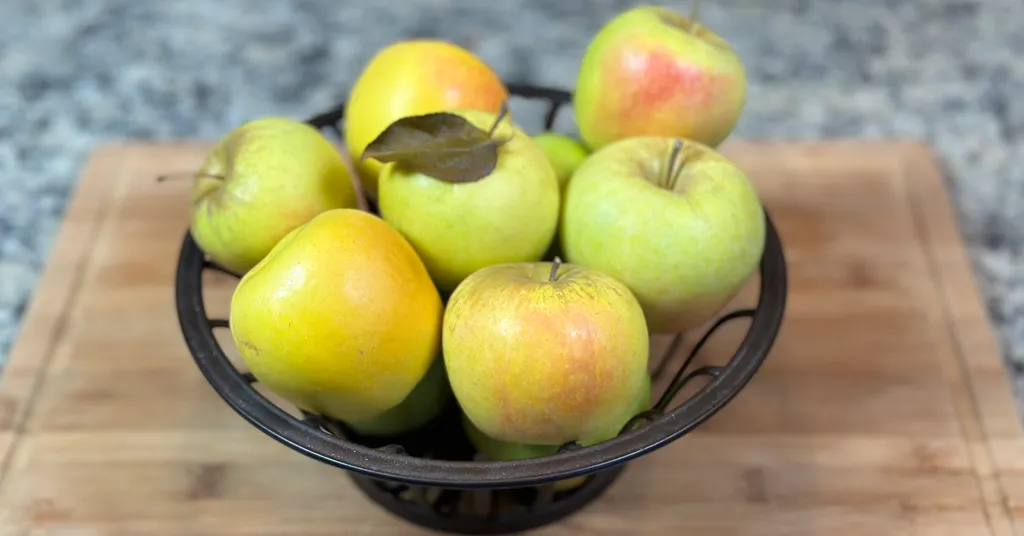
Favorite Tools for Making Homemade Canned Applesauce
When I make a big batch of applesauce, a few tools make things easier. My water bath canning supplies are always ready, but I also like using an apple peeler, slicer, and corer to speed up the prep. A food processor is handy if I want smooth applesauce. A half-pint ladle is perfect for filling jars fast. Using the right tools helps the process go smoothly from start to finish.
If you’re looking for in-depth advice on safety, be sure to check out Water Bath Canning Safety Tips before getting started.
You can find the whole list (and links) of tools I used when canning this recipe in the Recipe Card Section below. While I prefer the above items, I included some alternatives as well.
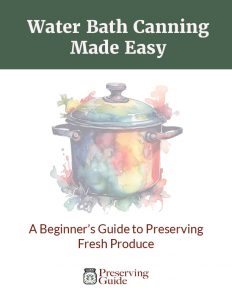
Water Bath Canning Made Easy
Preserve the flavors of your favorite fruits and vegetables with my FREE comprehensive and beginner-friendly Water Bath canning eBook.
Step-by-Step Applesauce Canning Recipe
Let’s jump into Water Bath Canning Applesauce. Follow these simple steps for a safe and tasty batch every time.
Ingredients for Homemade Applesauce Recipe
- 6 lbs Apples Peeled, cored and quartered
- 2/3 cup Sugar
- 1/2 cup Water
- 1/2 cup Bottled Lemon Juice
Use exact measurements to stick with a safe and approved Canning Applesauce Recipe.
Prepping the Jars and Lids
I always begin by washing jars and lids with warm soapy water. Check for chips or cracks. Clean jars are key to safe canning.
Apple Prep for Homemade Canned Applesauce
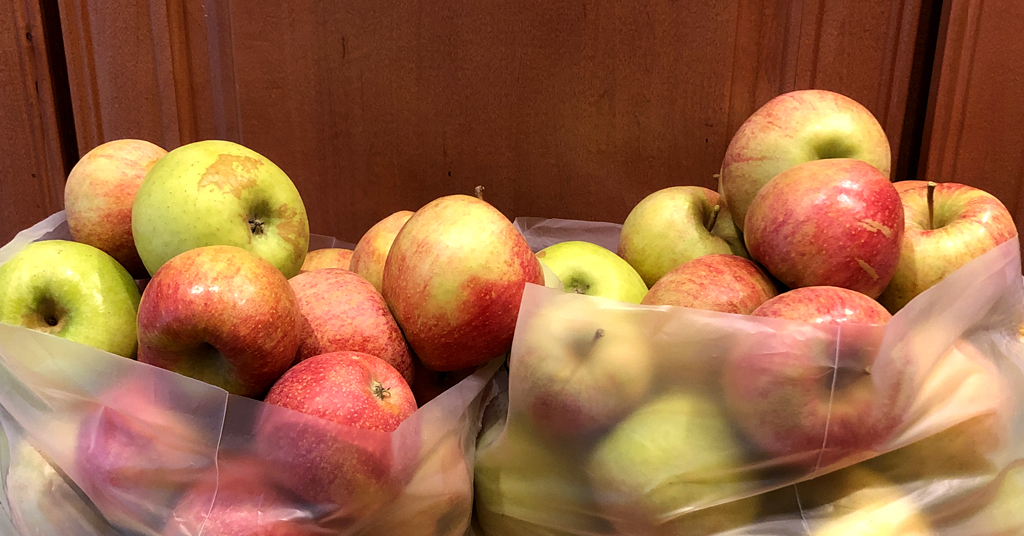
Wash apples well, then peel, core, and quarter them. My apple peeler, slicer, and corer saves so much time, but a regular knife and peeler work fine too.
Getting Your Water Bath Canner Ready
Add the canning rack and jars to your water bath canner. Fill with enough water to cover jars by 2-3 inches. Start heating the water. Your jars will warm as you heat up the water.
Cooking the Applesauce
Place apples, sugar, water, and lemon juice into a large stainless pot or enameled Dutch oven. Cook over low to medium heat for about 25 minutes, stirring now and then, until the apples are soft.
Decide if you want chunky or smooth applesauce:
- For chunky, mash with a potato masher to your liking.
- For smooth, let it cool slightly and blend in batches with a food processor. Bring it back to a boil before canning.
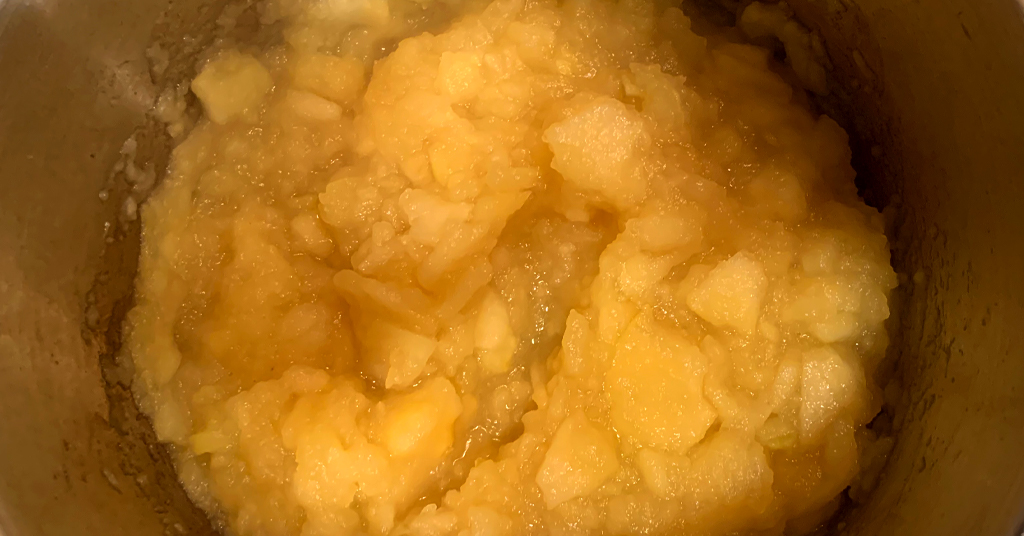
Filling the Jars
Take jars out of the canner, one by one, and empty the water back into the canner. Ladle hot applesauce into jars, leaving 1/2 inch headspace. Use a de-bubbler to remove trapped air. Adjust headspace as needed. Wipe rims, add lids, and screw bands on to fingertip tight.
Processing in the Water Bath
Lower jars into the boiling water. Make sure water covers jars by at least two inches. Start your timer when the water is boiling and process pint jars for 20 minutes. If you live at a higher elevation, be sure to check altitude adjustment tips for canning to get the timing right.
Turn off the heat when the timer goes off and let jars rest in the water for 5 minutes.
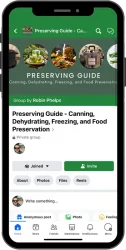
Join My Preserving Guide Facebook Group
Expert tips, tested recipes, and vibrant discussions on canning, dehydrating, freezing, and all things food preservation!
Cooling and Storing You Home Canned Applesauce
Lift jars out carefully and place them on a towel or rack. Let them cool for 12 to 24 hours. Don’t tilt the jars while moving them; this could affect the seal.
Once cool, remove bands and check seals. Wash jars if needed and label with the recipe name and date.
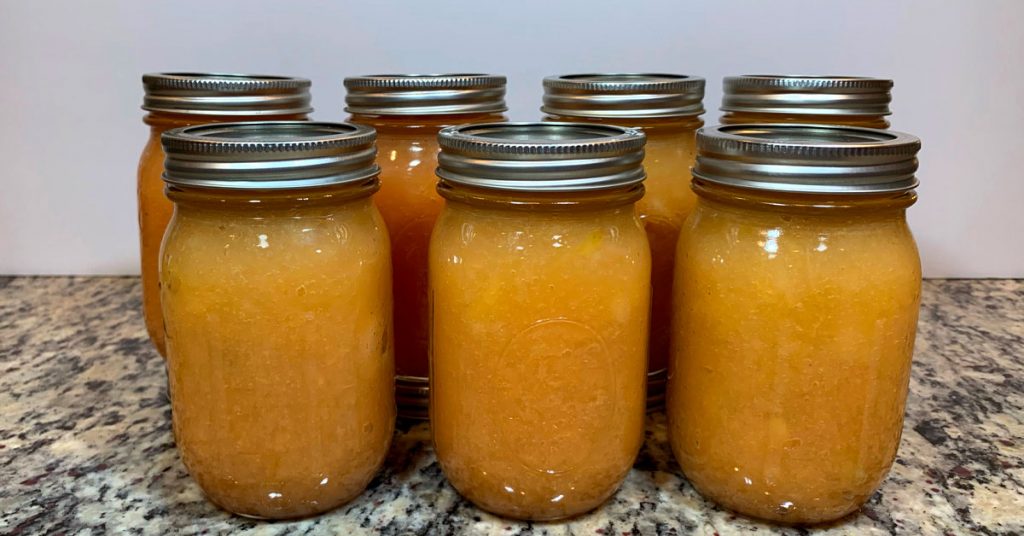
Enjoying Your Homemade Canned Applesauce
My family loves this Easy Applesauce Recipe. It’s a staple in our pantry all year. We eat it with Thanksgiving dinner or as a side with pork chops. The simple ingredients mean I never worry about my kids eating too much. The scent of cooking apples fills the house and always reminds me of fall.
Additional Apple Preserving Recipes
Recipe Card
Water Bath Canning Applesauce Recipe
Equipment
- Large Stainless Steel Pot or Enameled Dutch Oven
- Large Stainless Steel Pot or Enameled Dutch Oven
- Potato Masher or Food Processor
Ingredients
- 6 lbs Apples Peeled, cored, and quartered
- 2/3 cup Sugar
- 1/2 cup Water
- 1/2 cup Bottled Lemon Juice
Want to Save this Recipe?
Instructions
- Clean jars and lids with warm soapy water. Ensure the jars do not have any chips or bubbles in the glass.
- Wash your apples under cold water. Then peel, core, and quarter your apples. For this part, I used my handy Apple Peeler, Slicer, and Corer which makes the entire process of peeling, coring, and slicing your apples quick and efficient. You can also use a regular vegetable peeler an apple corer and a knife and cutting board if that is what you have on hand.
- Put your water bath canner on your stove. Add your canning rack to your water bath canner. Add your pint jars to the water bath canner. They will warm as you heat the water. Add enough water to cover jars with at least 2-3 inches of water. Bring to a boil and allow the jars to boil for 10 minutes.
- Combine your apples, sugar, water, and lemon juice in your stainless steel pot or enameled Dutch oven. Cook for 25 minutes over low-medium heat, stirring occasionally, until apples are very tender.
- Decide if you would like chunky applesauce or smooth applesauce. If you would like chunky applesauce mash apples with a potato masher to desired consistency. If you would like a smooth applesauce cool your apples slightly and process in batches in your food processor until smooth. Return smooth applesauce to your pot or Dutch oven and bring applesauce to a boil before filling jars.
- Remove your jars from the water bath canner one at a time using your jar lifter. Dump water out of the jar into your water bath canner. Ladle hot applesauce into hot jars, leaving 1/2 inch headspace (use your headspace measurer to verify the correct amount).
- Using your de-bubbler make sure to remove all air bubbles. Applesauce has a thinker consistency so air bubbles may be hiding so ensure you do this a few times to remove as many air bubbles as possible. Adjust headspace, if necessary, by adding additional hot applesauce.
- Wipe the rim of the jar to ensure a good seal is made with the lid. Center the lid on the jar and add the band to fingertip tight. Put the jar back into the water bath canner using your jar lifter.
- Repeat steps 6-8 for the remaining applesauce, until the jars are filled.
- Lower the water bath canner rack into the boiling water. Ensure your jars are covered by at least 2 inches of water. If your water is not boiling start your processing time when the water is boiling. Process pint jars for 20 minutes. Make sure to adjust your time for altitude. Set a timer, it makes it much easier to make sure you process for the correct time. When your timer goes off turn off the heat and remove the canner lid. Leave the jars in the water for 5 minutes.
- Lift your canning rack out of the water. Using your jar lifer carefully move your jars onto a wire rack or kitchen towel to allow them to cool. When moving your jars try not to tilt them to the side as this could affect the seal of your jars. Allow your jars to cool for 12-24 hours before handling.
- Once cool, remove the canning rings from the jars. Wash your jars off to ensure there is no food residue on the outside of the jar from processing. Label your jar with the name of the recipe and date. This will help you remember what recipe you used to can and the date will allow you to use the oldest canned goods first.
Notes
Editorial Process
At Preserving Guide, I take pride in my thorough and impartial approach to recipe and product reviews. Read my editorial process for detailsRobin
Robin Phelps has been preserving food for her family for over 20 years. Today, Robin is a full-time home preservation blogger and coach. Join Robin to learn how to easily make delicious and safe homemade preserved items.
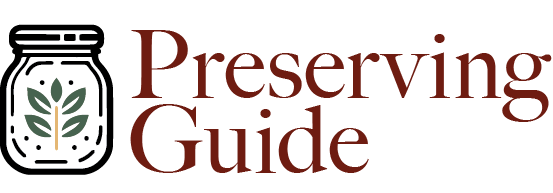
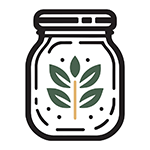
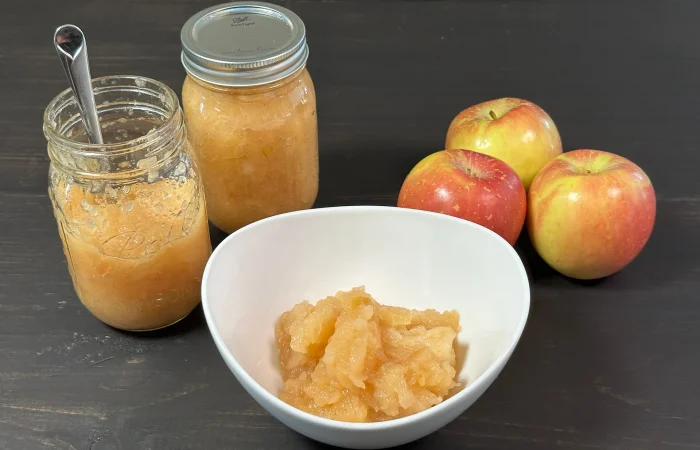
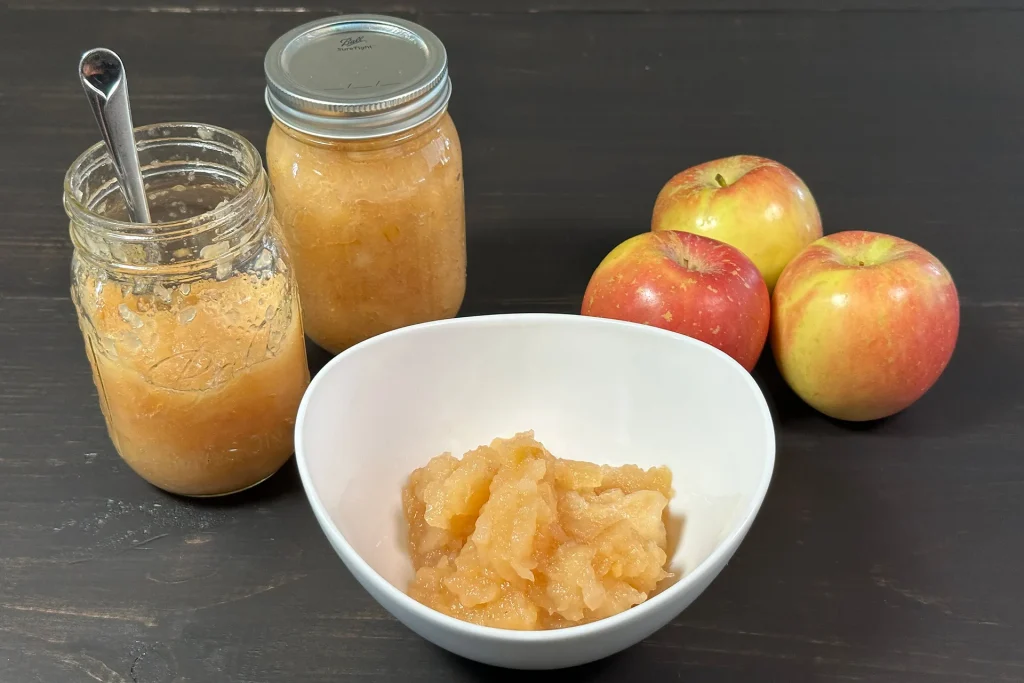
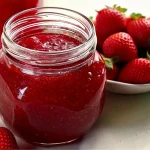
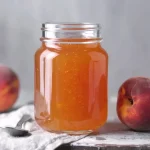
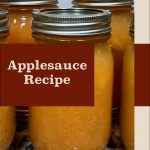
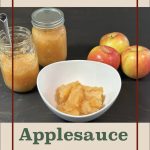
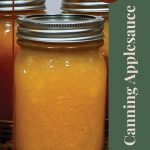
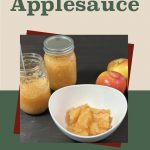
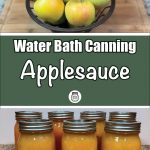
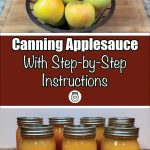
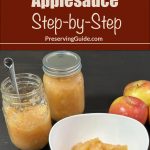
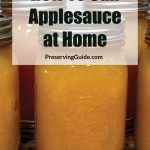
No Comment! Be the first one.